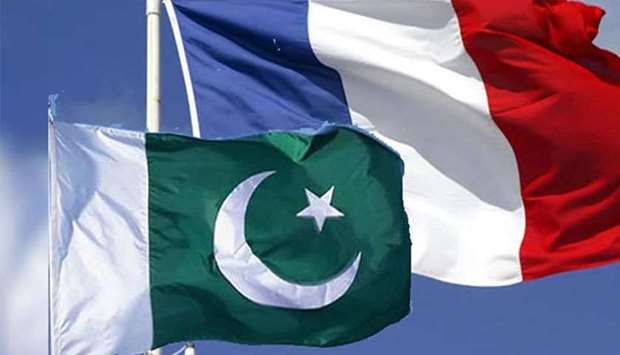French nationals and companies in Pakistan were advised by their embassy yesterday to temporarily leave after violent anti-France protests paralysed large parts of the country.
Anti-French sentiment has been simmering for months in Pakistan since the government of President Emmanuel Macron expressed support for a satirical magazine’s right to republish cartoons depicting Prophet Muhammad (PBUH) — deemed blasphemous by Muslims.
Yesterday, the Pakistan government banned an extremist political party whose leader had called for a march on the capital to demand the expulsion of the French ambassador.
Saad Rizvi, leader of Tehreek-e-Labbaik Pakistan (TLP), was detained hours after the Tuesday call, bringing thousands of his supporters onto the streets in cities across the country.
Two police officers died in clashes during which water cannon, tear gas and rubber bullets were used.
“Due to the serious threats to French interests in Pakistan, French nationals and French companies are advised to temporarily leave the country,” the embassy said in an email yesterday to French citizens.
“The departures will be carried out by existing commercial airlines.”
Extra security personnel were deployed to the French embassy — inside a guarded diplomatic enclave closed to the public — and shipping containers placed as fortifications around its outer wall.
“Our police and rangers are capable of handling the situation,” Interior Minister Sheikh Rashid Ahmed told a press conference later yesterday.
“All the French citizens are safe here and there’s no threat to them.”
Still, Ludo Van Vooren, a French citizen living in Islamabad, told AFP he was assessing the embassy’s advice.
“We are a little shocked and reflecting on what to do,” he said.
“Following the incidents of the last few months, we haven’t been panicking, but we are very vigilant. Now, we are trying to work out if things have changed.”
Last year around 445 French citizens and more than 30 companies were registered in Pakistan, according to a French government website.
The TLP is notorious for holding days-long, violent road protests over blasphemy issues, causing major disruption to the country.
Blasphemy is a hugely sensitive issue in Pakistan.
Successive governments have a long history of avoiding confrontation with hardline groups, fearing any crackdown on religious parties could spark wider violence.
“We are in favour of protecting the Prophet (PBUH)’s honour, but the demand which they are seeking could have portrayed Pakistan as a radical nation worldwide,” Interior Minister Sheikh Rashid Ahmed told a news conference.
Anger erupted in Autumn last year when the satirical magazine Charlie Hebdo republished cartoons of the Prophet Muhammad (PBUH).
Macron’s subsequent defence of free speech triggered anger across the Muslim world, with tens of thousands in Pakistan, neighbouring Iran and other Muslim countries flooding the streets and organising anti-French boycotts.
TLP supporters brought the capital Islamabad to a standstill. At the time, Prime Minister Imran Khan, a populist leader, blasted Charlie Hebdo for re-publishing the cartoons, saying “wilful provocations” should be “universally outlawed”.
He accused the French president of attacking the Muslim faith and urged Islamic countries to work together to counter what he called growing repression in Europe.

Flags of Pakistan and France
